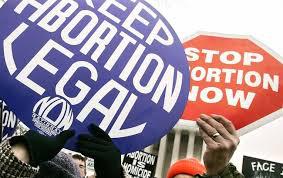In 1999, the year I graduated college, Ani DiFranco, my favorite angry girl rocker, came out with a song, Not Angry Anymore.  It was about how she understood what all the fighting was about, but she just wasn’t going to be angry anymore.  It’s a beautiful song, but I was pissed. How could she not be angry at the world anymore?  Had she gone soft?  What about the revolution?  What about the movement?
Over the years, I have grown to understand the relationship between anger, revolutions, and movements.  And while I still consider myself a feminist, I’m really not angry anymore either, and here’s why:
Anger might start a revolution but it doesn’t fuel a movement. Hope does.
Lately, I have been distressed at the amount of anger - unhelpful anger - in the context of social movements and in the name of causes I care deeply about like sexism, homophobia, and sexual violence.
The first example that comes to mind is the Occupy Movement.  The Occupy Movement started because people were angry about income inequality, which is certainly a good reason to be angry. Occupy is fighting back “against the richest 1% of people that are writing the rules of an unfair global economy that is foreclosing on our future.”  Maybe I need to be more of a conspiracy theorist, but I’m not convinced that the richest 1% are proactively trying oppress the rest of us.  Are there selfish, greedy, unethical bankers on Wall Street?  Sure. But there are also generous philanthropists who care deeply about structural poverty, and fund organizations that work to end it. And there are IT professionals, secretaries, and middle managers who actually LIKE their jobs on Wall Street and aren’t trying to hurt anyone.  While the anger is positioned as holding people accountable, I question whether accountability is just another word for judgement.
The second example is the hullaballoo about Chris Culliver, a football player on the San Francisco 49ers who said:
Unsurprisingly, the Internet and media judged him swiftly and severely. But with what outcome in mind?  To shame him into new beliefs and deeper understanding? To make him defensive and unwilling to learn?  To make him feel so badly about himself that he would hide under a rock forever?  Certainly his comments were offensive, and stupid.  But at least he said them out loud. Which was a chance to understand and learn about homophobic attitudes in a deeper way.  Maybe Chris never had a gay friend or family member. Maybe he never sat through a weeklong campus orientation that challenged his family or cultural beliefs about gay people.  Maybe he believes in some of the myths our culture teaches about homosexuality and masculinity.  Maybe the 49ers didn’t do a good job educating their players on these issues.  Lots of appropriate places to direct energy and passion, but tearing down a 24-year old kid from a small town in North Carolina probably isn’t going to do much to end homophobia in America.  In fact, it will just make people with those beliefs even more defensive, secretive, and fearful to work through them in any substantive way.  Thankfully, Culliver is actually going to participate in sensitivity training and volunteer with The Trevor Project, but that news probably won’t go as viral as his initial comments.
Finally, I watched feminist Twitter go crazy over the Audi ad during the Superbowl.  I didn’t watch the ad until the morning after the Superbowl, but if I had gone on the Twitter commentary, I would have believed that the teenage boy violently attacked the girl in a roomful of people cheering.  For those of you who didn’t see it, it’s about a teenage boy going to the prom alone.  His dad lends him his Audi, which gives him a boost of confidence, and he walks in and kisses the prom queen in front of the prom king, assumed to be her boyfriend (because the prom king punches the kid after the kiss).  This was a 60 second ad so there was no context whatsoever.  The context could have been a prior relationship between the two of them, and the prom queen’s greatest wish was for him to come to the dance and kiss her.  They could have been a couple.  Or he could have walked into the dance a total stranger and kissed her without her consent.  But why assume it was a forcible assault?  And I realize that it’s not as news-worthy to invite questions like, “In what context could that kiss have been just fine?  And in what context could that kiss have been ok?”  But those questions would create a much more helpful dialogue than accusing Audi of promoting sexual assault.
I’m not saying we shouldn’t be outraged when acts of sexual violence or other offenses take place. But I am saying that some of the backlash against activists might be justified.  If we are not inviting conversation and dialogue, we are not creating change.  I don’t want to live in a world where everyone says what they think I want to hear, but continues to harbor destructive beliefs inside of themselves.
Let’s not let anger bleed into places that it doesn’t belong. Lets not be angry at people whose ignorance is part of a larger cultural problem.  Let’s not be unwilling to listen and learn.  If we need to hold people accountable, let’s do so with compassion, empathy, and a full understanding of context.  Lets make sure our anger is directed towards the change we wish to see in the world.  Let’s not allow anger to crush the few teachable moments we have.


Well said. I could not agree more. Thank you for starting this dialogue.